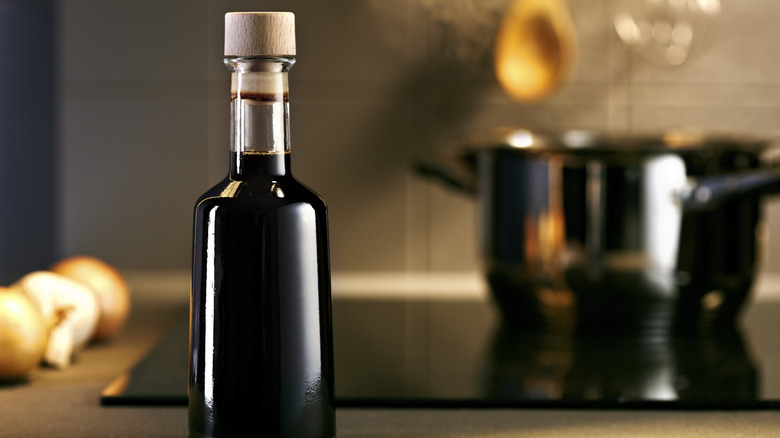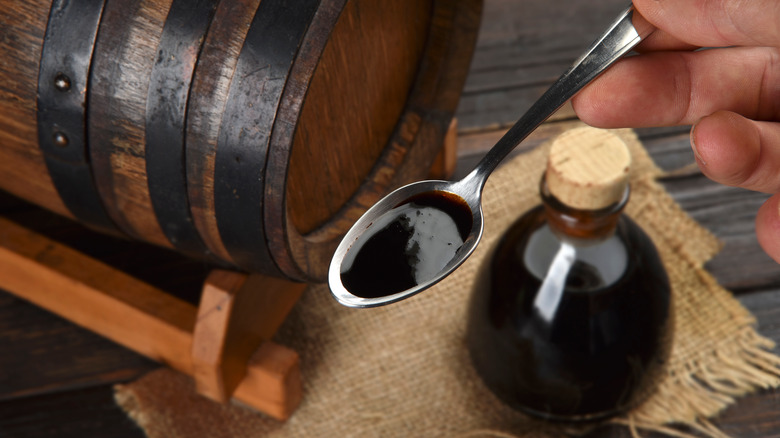Does Balsamic Vinegar Go Bad?
Fans of balsamic vinegar probably can't imagine their salad dressings, glazes, and reductions without it. Aromatic with a distinctly sweet taste that tempers its acidic kick, the full-bodied condiment is as unique as it is versatile. No wonder it's been a prized delicacy in Italy for at least a millennium.
Here in the United States, however, balsamic has only become a kitchen staple in the last 45 years. We can thank Chuck Williams, the founder of specialty kitchen and home goods store Williams Sonoma, for placing it on American shelves for the first time in 1978.
As for how long it can last on those shelves? Well, traditional balsamic vinegar is aged for a minimum of 12 years in wooden barrels during production while commercially produced batches only require a minimum aging time of two months. Given the fact that aging is a key part of the process, no matter which kind of balsamic vinegar you've purchased, one might imagine that it can never go bad. Unfortunately, that's not quite how it works.
How to store your balsamic vinegar
If you've spent a pretty penny on a quality bottle of balsamic, chances are, you're going to want to make it last without compromising its flavor. The good news is that you can keep your vinegar tasting great for a period of three to five years past its sell-by date, per Westside Lilo's. But you'll have to be sure that the storage conditions are just right.
During its fermentation process, balsamic sits in a cool, dark environment. Those are the same conditions you'll want to keep it in at home. Once you've opened your bottle, you can store it in a dark cupboard or pantry. Direct light and heat are responsible for deteriorating the composition of the vinegar, which can ruin the taste. So, the less it's exposed to both, the better. Meanwhile, unopened bottles of balsamic vinegar can last in the proper conditions indefinitely.
Basically, if you avoid leaving the bottle out on your sunny kitchen counter, you can enjoy your balsamic for years to come.

